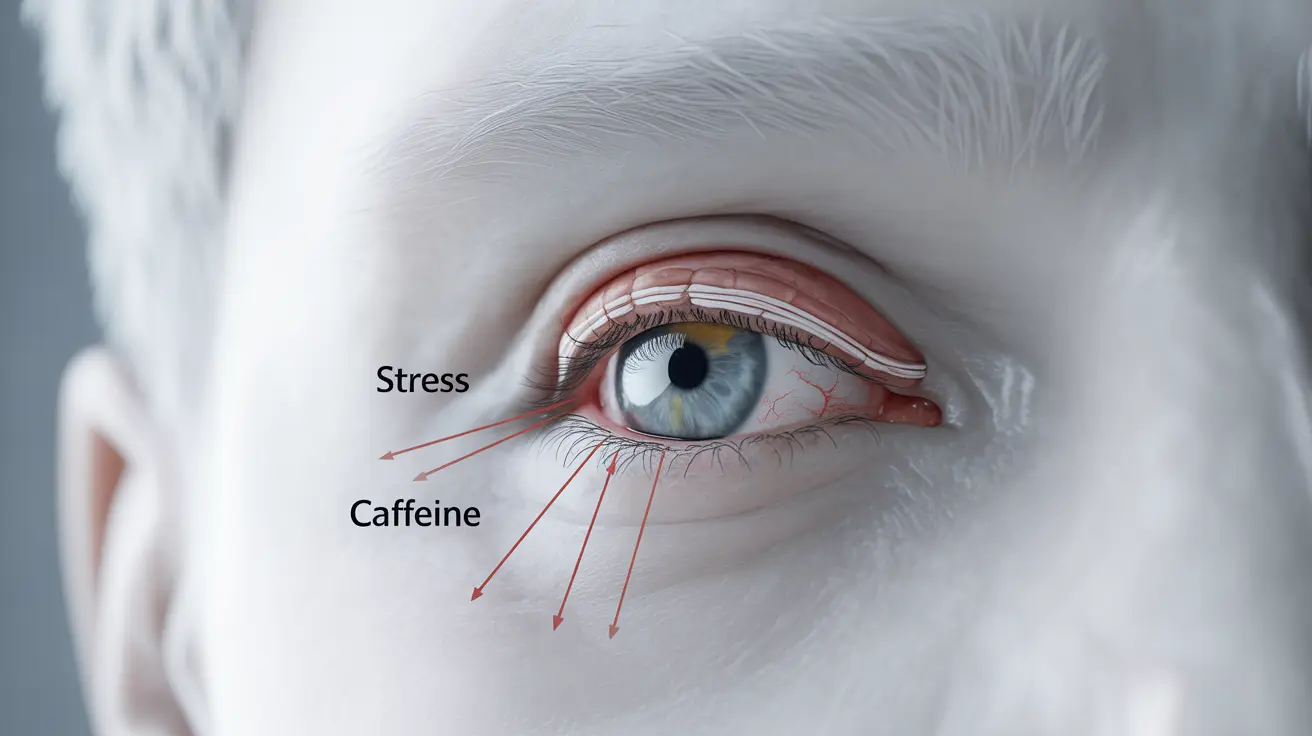When experiencing eye twitching, many people wonder if it could be a sign of something serious like a stroke. While eye twitching alone rarely indicates a stroke, understanding the relationship between these conditions and recognizing important warning signs can help you make informed decisions about seeking medical care.
This comprehensive guide will explore the connection between eye twitching and stroke, other potential causes of eye twitching, and when you should be concerned enough to seek immediate medical attention.
Understanding Eye Twitching and Stroke Risk
Eye twitching, medically known as blepharospasm, is typically a benign condition that causes involuntary muscle contractions in the eyelid. While it can be annoying and sometimes concerning, eye twitching by itself is rarely a sign of stroke.
However, when eye twitching occurs alongside other neurological symptoms, it may indicate a more serious condition that requires immediate medical attention.
Warning Signs That Require Immediate Medical Attention
If you experience eye twitching along with any of the following symptoms, seek emergency medical care immediately:
- Sudden weakness or numbness, especially on one side of the body
- Difficulty speaking or understanding speech
- Severe headache with no known cause
- Vision problems in one or both eyes
- Loss of balance or coordination
- Facial drooping or asymmetry
Common Causes of Eye Twitching
Most cases of eye twitching are caused by common, non-threatening factors:
- Stress and anxiety
- Fatigue or lack of sleep
- Caffeine consumption
- Eye strain from digital devices
- Dry eyes
- Magnesium deficiency
- Alcohol consumption
- Certain medications
Managing and Preventing Eye Twitching
There are several effective ways to reduce or eliminate eye twitching:
- Getting adequate sleep
- Reducing caffeine intake
- Practicing stress management techniques
- Taking regular breaks from screen time
- Using artificial tears for dry eyes
- Maintaining proper hydration
- Considering magnesium supplementation (with medical guidance)
When to Consult a Healthcare Provider
While most eye twitching episodes resolve on their own, certain situations warrant medical attention:
- Twitching that persists for more than a week
- Twitching severe enough to cause eye closure
- Twitching that spreads to other facial muscles
- Accompanying eyelid drooping
- Development of red or swollen eyes
- Changes in vision
Frequently Asked Questions
Can eye twitching alone be a sign of a stroke? No, eye twitching alone is rarely a sign of stroke. However, if it occurs alongside other neurological symptoms like facial drooping, weakness on one side, or speech problems, seek immediate medical attention.
What other symptoms should I watch for if my eye is twitching that could indicate a stroke? Watch for sudden onset of facial drooping, weakness or numbness (especially on one side), confusion, difficulty speaking, severe headache, vision problems in one or both eyes, and problems with balance or coordination.
What are the common causes of eye twitching besides stroke? Common causes include stress, fatigue, caffeine consumption, eye strain, dry eyes, magnesium deficiency, alcohol use, and certain medications. These causes are typically benign and can be managed with lifestyle changes.
When should I see a doctor about persistent or severe eye twitching? Consult a healthcare provider if twitching persists longer than a week, causes eye closure, spreads to other facial muscles, is accompanied by eyelid drooping or vision changes, or if your eyes become red or swollen.
How can I reduce or stop eye twitching caused by stress or fatigue? You can manage stress-related eye twitching by getting adequate sleep, reducing caffeine intake, practicing stress management techniques, taking regular breaks from screen time, and ensuring proper hydration. If symptoms persist, consult a healthcare provider.




